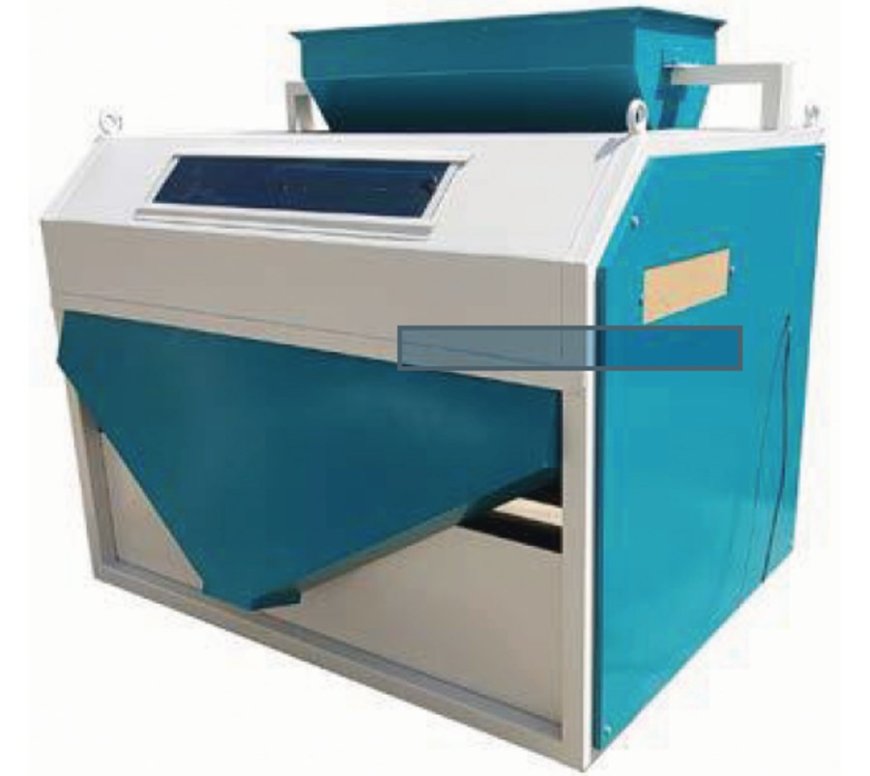Top Benefits of Using a Destoner Machine for Grain Processing
A destoner machine is a vital equipment used to remove stones and other heavier foreign particles from grains like rice, wheat, corn, pulses, and seeds.

Cleaning and purifying the grain from unwanted impurities is one of the most important processes in the fast-paced world of grain processing. The destoner machine is designed to handle this task with remarkable precision. These machines have transformed the industry by ensuring that grains are not only cleaned but also enriched for further processing, maintaining their quality for consumption or processing into other products.
This article delves into the functionality, types, and significance of destoner machines, with special emphasis on the innovative magnetic destoner technology, and how it’s changing the landscape of food and agricultural industries.
What Is a Destoner Machine?
A destoner machine is a vital equipment in grain processing units, used to remove stones and other heavier foreign particles from grains like rice, wheat, corn, pulses, and seeds. As the name suggests, a destoner removes stones, but it also separates other harmful elements such as dust, metal particles, and soil clods.
In any grain or seed-processing operation, the removal of these impurities ensures the efficiency of the grinding and packaging stages. Moreover, clean grains also mean improved quality for end consumers, which is especially important in the food industry.
How Does a Destoner Machine Work?
A typical destoner machine utilizes a combination of vibrating screens, airflows, and gravity forces to separate stones and heavier particles from the grains. Here's a quick rundown of the key steps involved in the operation:
- Feeding: Grains are fed into the destoner via an automatic or manual conveyor system.
- Airflow and Vibration: The machine generates vibrations while applying an upward airflow. This helps in pushing lighter impurities to the top while heavier ones, like stones, fall to the bottom.
- Separation: Using vibration or inclined screens, the stones, metal fragments, and other unwanted materials are separated, leaving only clean grains to pass through.
- Discharge: Finally, the cleaned grain moves towards the next stage of processing, while the impurities are discarded through dedicated outlets.
The Rise of Magnetic Destoner Machines
A magnetic destoner is an innovation in destoner machine technology, designed to specifically target metallic impurities. Using high-strength magnets, these machines can effectively detect and extract even the smallest metal fragments from the grains. In agricultural and food processing operations, any traces of metal in the grains can lead to severe contamination.
This machine works by using powerful magnetic fields to attract and remove metal parts while letting the rest of the grain pass through untouched. This makes it a top choice for industries that handle raw agricultural products like spices, pulses, rice, and other grains.
Magnetic destoners not only improve the quality of the grain but also enhance the safety standards by ensuring no hazardous metals are present, reducing the risk of foodborne injuries due to consumption of metal-contaminated products.
Benefits of Using a Destoner Machine
Investing in a destoner machine offers several advantages to grain processing units:
- Improved Grain Quality: Removing stones and impurities ensures the grain is clean, which can significantly increase its market value.
- Enhanced Processing Efficiency: Clean grains improve the efficiency of subsequent machines such as grinders or milling units, which otherwise can suffer damage from stones or metal fragments.
- Cost-Effective: By extending the lifespan of machinery and minimizing product wastage, destoner machines reduce operational costs in the long run.
- Safety: Grain impurities, especially metal parts, can compromise food safety. A magnetic destoner eliminates such threats, maintaining consumer confidence in the product.
Applications of Destoner Machines
Destoner machines are indispensable in numerous industries:
- Grain Milling: To clean rice, wheat, corn, barley, oats, and other grains before processing.
- Spice Processing: For cleaning pepper, cumin, and other spices, removing stones and metal debris.
- Pulse Industry: To separate dirt and stones from lentils, beans, and peas.
- Seed Cleaning: Ensuring high-quality seeds are free from any impurities or foreign objects.
Choosing the Right Destoner Machine for Your Operation
When considering a destoner machine, it's essential to assess factors like the type of grain, the volume of processing, and specific requirements for metal separation. For grain types prone to carrying more metallic contaminants, investing in a magnetic destoner becomes invaluable.
Other factors such as airflow capacity, vibration frequency, and the type of screen must also be carefully considered to ensure optimal cleaning efficiency. Additionally, opting for machines with automated controls and easy-to-maintain components will further boost overall productivity.
Conclusion
Destoner machines, particularly the magnetic destoner, have significantly elevated the standards of cleanliness, safety, and efficiency in grain processing. By eliminating impurities, stones, and metal fragments, these machines ensure that high-quality grain reaches consumers and meets stringent industry regulations. Whether you are operating a small scale processing unit or a large factory, integrating a destoner machine into your processing line is a step forward in optimizing productivity and ensuring high-quality output.
What's Your Reaction?



























